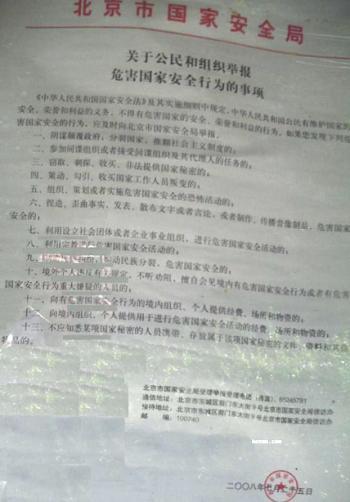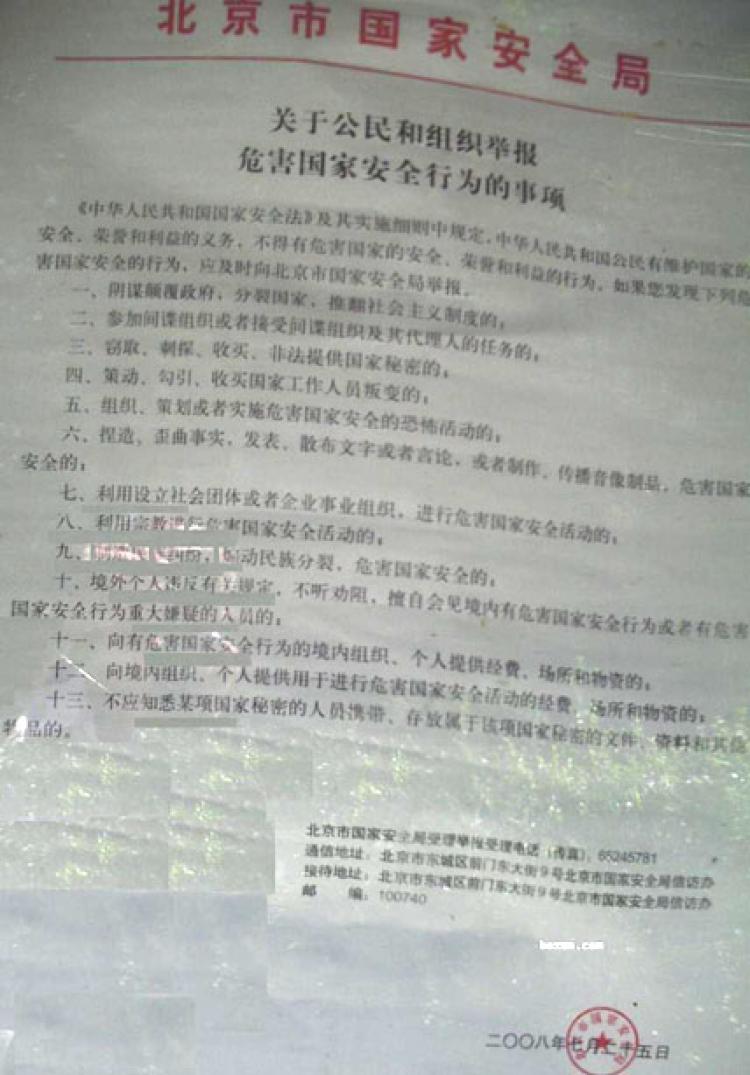When the Olympics were awarded to Beijing, some had hopes the Games would bring with them an opening up of Chinese society. A poster plastered on Beijing streets suggests the opposite may have occurred.
One of the posters was photographed by a journalist from the Boxun News website. The poster is entitled, “Notice to Citizens and Organizations on Reporting Deeds that Endanger the Security of China.” According to the notice, it is the duty of all citizens to “protect the safety, reputation, and profit of the country.”
Put out by Beijing’s National Security Bureau, the poster lists 13 “Don’ts.” The list requires the Chinese should not engage in any of these activities. It also requires that citizens report any such activities—or even suspicion of these activities—to the Beijing National Security Bureau immediately.
One of the posters was photographed by a journalist from the Boxun News website. The poster is entitled, “Notice to Citizens and Organizations on Reporting Deeds that Endanger the Security of China.” According to the notice, it is the duty of all citizens to “protect the safety, reputation, and profit of the country.”
Put out by Beijing’s National Security Bureau, the poster lists 13 “Don’ts.” The list requires the Chinese should not engage in any of these activities. It also requires that citizens report any such activities—or even suspicion of these activities—to the Beijing National Security Bureau immediately.







